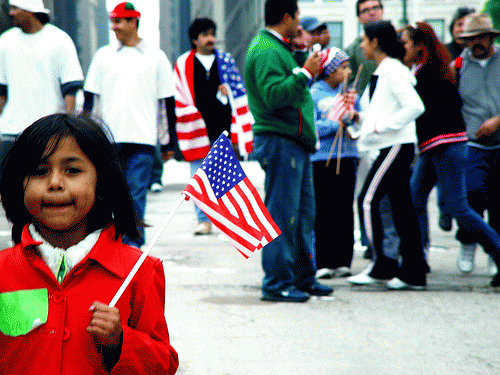Flickr Photo by jvoves
Karlos Guana Schmieder, whose mother, Jeanne Gauna, was the founder and long term co-director of the Southwest Organizing Project (SWOP) in Albuquerque, is the communications director for the Center for Media Justice (CMJ) and "works with alliances to create communications strategies that really uplift and highlight their goals as an alliance."
Schmieder has been creating strategies with the Detention Watch Network, which is an immigrant rights alliance that focuses specifically on immigrant detention. He also has been working with a juvenile justice network called Community Justice Network for Youth (CJNY), a juvenile justice groups that Schmieder said is working to lower racial disparities in the criminal justice system across the U.S.
On Friday afternoon, during the U.S. Social Forum in Detroit, the CMJ and other collaborating organizations--the Progressive Communicators Network, Smar Meme, and the Praxis Project--will come together for a four hour People's Movement Assembly designed to develop a media justice agenda for the country.
"[The Center for Media Justice] thinks the social forum presents a unique opportunity and the right convergence of people to integrate an idea of collaborative, creative storytelling into a movement building strategy for social movements," said Schmieder. "At the same time we think there's going to be the right leaders there for us to define a media justice policy framework that will help us to be able to use that storytelling in a real way."
Schmieder added that the assembly event between communications leaders will take a good look at how to make media policy a "real social justice issue" that includes how to ensure everyone in this country has "access to the Internet, access to the media, and access to many different platforms to really tell a new story about social movements in the U.S."
CMJ holds the honor of being part of the Media Action Grassroots Network (MAG-NET), one of three alliances that came together as a result of the first USSF in Atlanta in 2007.
All the organizations involved are keen on the reality that they work with groups, organizations or movements that have had "destructive stories" attached to them. They really want to help leaders of groups and organizations understand how to address and handle a destructive story so that it does not continue to be detrimental to movement building.
(Note: You can view every article as one long page if you sign up as an Advocate Member, or higher).






